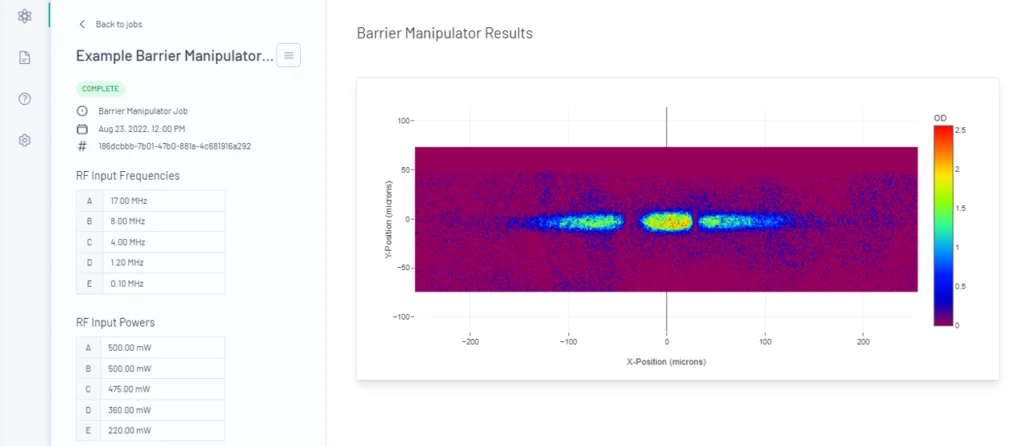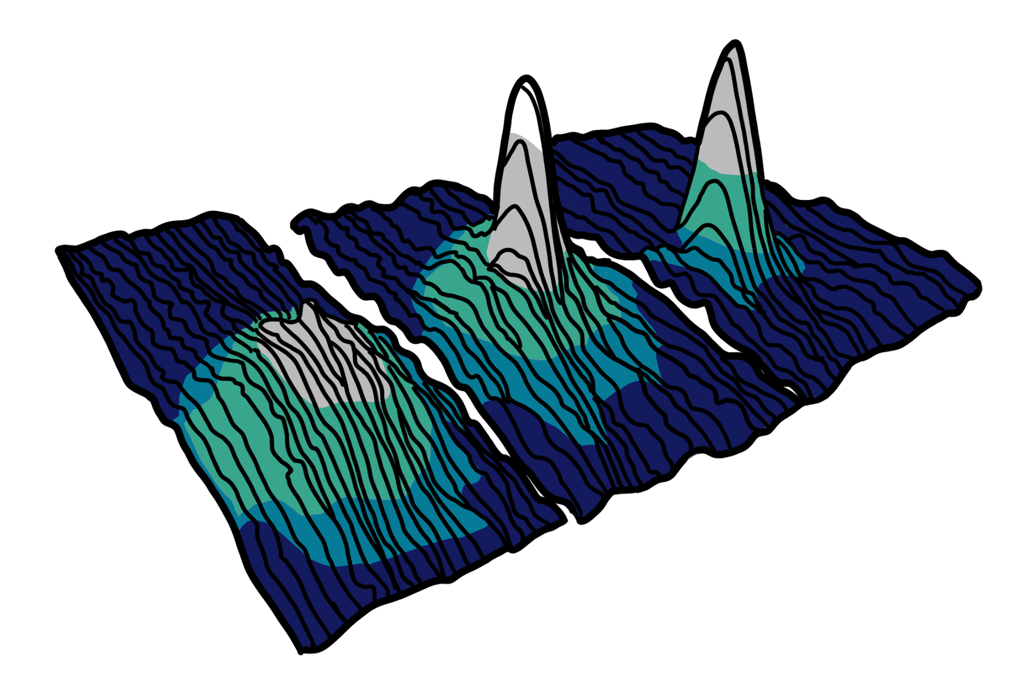

Learn, research, and develop with quantum matter
Start Experimenting Today
Learn, research, and develop with Quantum Matter
What can I do with Oqtant?
Explore a broad range of quantum phenomena
- Interference & Coherence
- Tunneling
- Superfluidity
- Atomtronics
- Superposition
- Non-linear behavior

Research
Solve critical time-to-publication and cost challenges. From across the globe, experiment using sophisticated hardware and powerful programmatic control.

Education
Enrich classrooms and upskill the quantum workforce with direct access to quantum matter and a growing library of resources to study quantum phenomena.
Process Flow
Each job is an individual experiment designed by you!
Create and manipulate a form of quantum matter called a Bose-Einstein condensate (BEC)
Job Submission
User-defined experimental parameters submitted
Execution
BEC created per user-defined parameters
Measurement
In-trap or time-of-flight imaging of BEC
Data Output
Resulting images and data analysis returned to user
User-friendly web application
Oqtant’s web application is your one-stop shop for managing your account and your jobs. The user interface makes it easy to customize your first (or 1,000th) quantum matter experiment — quantum matter is literally a click away!
Learn more about the processes of cooling atoms to create a form of quantum matter called a Bose-Einstein condensate (BEC) and control optical barriers to manipulate and split your BECs.

Oqtant API (OqtAPI)
> pip install oqtant
Oqtant offers a Python package that provides an expanded set of tools for interfacing with the Oqtant platform, designing experiments, and analyzing results.
You can start with the walkthrough notebooks to gain familiarity with Oqtant, or dig into a demonstration notebook to explore specific quantum phenomena like interference.
Installing OqtAPI is easy!
# Create a Simple Static Barrier
barrier = Barrier(
position=-10, height=30, width=3, shape="GAUSSIAN", birth=2.5, lifetime=7.5
)
# and QuantumMatter with a lifetime so that the barrier exists right up to the end
barrier_matter = QuantumMatter(
temperature=100,
lifetime=10,
barriers=[barrier],
image="IN_TRAP", # take an in-trap image to directly image barrier effects
note="in-trap imaging with barrier",
)
job_id = client.submit(barrier_matter, track=True)Flexible pricing, starting at absolute zero
START EXPLORING
FREE
Best for learners of all levels
- No purchase necessary
- Submit up to 10 jobs per day
PAY AS YOU GO
$50
Best for researchers and advanced learners
- 5 jobs included ($10 per job)
- Submit up to 100 jobs per day
- Priority queueing
Advanced
Need 1000+ jobs?
Want a team account?
Prefer to pay another way?
Let us set you up for success!

Why does quantum matter… matter?
What is a BEC?
A Bose-Einstein condensate (BEC) is a type of quantum matter. You create a BEC by cooling atoms to a fraction above absolute zero, where they behave like a single quantum mechanical ensemble.
What can BECs do?
With BECs, you can directly study quantum effects like superposition because they manifest macroscopically. You can also use BECs to emulate other quantum systems.
What can I do with BECs?
From the Oqtant web application or Oqtant API, you can submit experiments (“jobs”) to create, optimize, shape, and measure BECs to study quantum phenomena like interference.

Paul Lipman Unveils Oqtant: Infleqtion's Quantum Matter Service, at Q2B Silicon Valley Conference
Infleqtion's Chief Commercial Officer, Paul Lipman, introduces the groundbreaking Oqtant service at the Q2B Silicon Valley Conference. Dive into the world of quantum sensing and discover how Oqtant is pushing the boundaries of Quantum Matter exploration.
